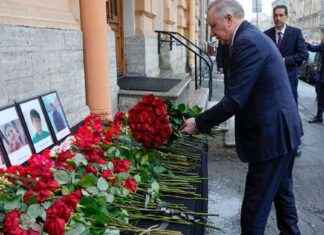The Serbian electoral commission announced on Wednesday, December 20, that new ballots would take place in thirty polling stations where the results could not be established, three days after the results of the legislative and local elections were contested by the opposition .
“The Serbian election commission has decided that parliamentary elections in Serbia will again be held in thirty polling stations and will take place on December 30,” said a statement published by public television channel RTS. These elections will mainly be organized in rural areas.
This announcement comes after two days of demonstrations which saw several thousand people gather in front of the electoral commission in Belgrade to contest the results of the elections, from which the presidential party (SNS, nationalist right) emerged victorious with 46.7%. voices.
The opposition, united under the banner Serbia Against Violence (SPN) – given 23.5% of the vote – has been denouncing fraud since Sunday. Allegations confirmed by a preliminary report from the international observation mission (OSCE, European Parliament and Council of Europe) which mentions “vote buying” and “ballot box stuffing” in a certain number of polling stations .
More than 40,000 non-resident votes
According to the opposition coalition, “more than 40,000 people” voted in the capital – where local elections were also held – without being residents, transported by bus from Republika Srpska, the Serbian entity in neighboring Bosnia. However, although Bosnian Serbs have the right to participate in national elections, they cannot vote in local elections.
Several videos posted on social networks on Sunday claimed to show the arrival of voters in one of the city’s stadiums, where they were told in which neighborhoods they should vote.
According to the first results, the SNS is given the winner in Belgrade with 39%, followed by the SPN with 34%. The opposition is calling for the vote to be canceled in Belgrade, but the national electoral commission has not ruled on the capital’s case, passing the buck to the local electoral commission.
Born in the wake of the massive demonstrations that shook the country in May, after the death of nineteen people in two shootings – including one in a primary school – the coalition has continued to denounce a biased campaign.
The pre-election period was marred by “violent rhetoric, biased media, pressure on public sector employees and misuse of public resources”, as well as “decisive involvement of the president”, Aleksandar Vucic, who offered to his party “an unfair advantage”, according to observers.






